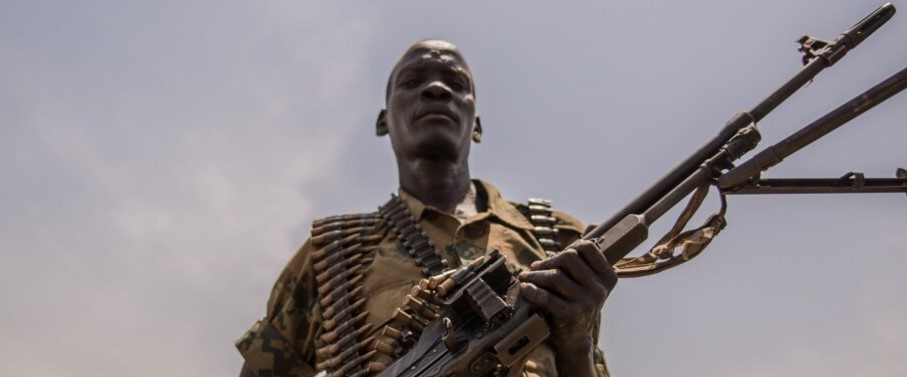The U.N. Security Council on Friday extended for one year an arms embargo and individual sanctions imposed on South Sudan, where recent violent clashes have raised fears of a new civil war.
The world’s newest nation, which gained independence from Sudan in 2011, was engulfed in a civil war from 2013 to 2018 that killed about 400,000 people and displaced 4 million.
A fragile peace was established through a 2018 power-sharing agreement between rival factions.
However, clashes in recent months have erupted between forces loyal to President Salva Kiir and supporters of his rival, First Vice President Riek Machar, who was placed under house arrest on March 26.
South Sudan’s government opposed the arms embargo, and six Security Council members abstained from the vote. The measure passed with nine votes in favor—the minimum required for adoption—extending the embargo until May 31, 2026.
The African members of the Security Council — Algeria, Sierra Leone, Somalia — abstained, along with China, Pakistan and Russia.
The resolution also extends the mandate of the Panel of Experts, which assists the work of the South Sudan Sanctions Committee, until July 1, 2026.
In its resolution, the Council expressed “concern over the continued intensification of violence” and stressed the need for both sides to “avoid a relapse into widespread conflict.”
Deputy U.S. Ambassador John Kelley said the embargo “remains necessary to stem the unfettered flow of weapons into a region that remains awash with guns.”
Sanctions Face Growing Opposition
U.N. arms embargoes are increasingly contested, particularly by African nations, often with Russia’s support. Like South Sudan, Russia called for lifting the restrictions.
Deputy Russian Ambassador Anna Evstigneeva, who abstained, argued the sanctions are “putting a brake on a successful political process unfolding in South Sudan.”
South Sudanese Ambassador Cecilia Adeng said ending the sanctions and embargo is “not only a matter of national security and sovereignty, but also a matter of economic opportunity and dignity.”
“The cost of sanctions is being borne, not only by the government, but ordinary citizens,” she said.
Following the decision, Tigere Chagutah, Amnesty International’s regional director for East and Southern Africa, said:
“We welcome the renewal of the arms embargo as it has been crucial to curtailing the flow of weapons that have been used to violate international humanitarian law (IHL). We urge U.N. members to diligently enforce it, especially amid recent violations.”
“We are, however, shocked that several Security Council members as well as the African Union Peace and Security Council called for lifting the arms embargo at a time when the human rights situation in South Sudan is deteriorating rapidly. Placing more guns in the hands of warring parties involved in serious human rights violations and crimes under international law would have been dangerous to civilians.”
The Pan-African Peacemakers Alliance (PAPA) and the Center for Peace and Advocacy (CPA) have also welcomed the U.N. Security Council’s renewal of the arms embargo on South Sudan.
“Countries like Uganda, which has fully supported South Sudan, should be included in future discussions on arms embargoes. Uganda is violating the embargo by procuring weapons on behalf of South Sudan, and such actions must be restricted internationally,” the groups said in a joint statement.




